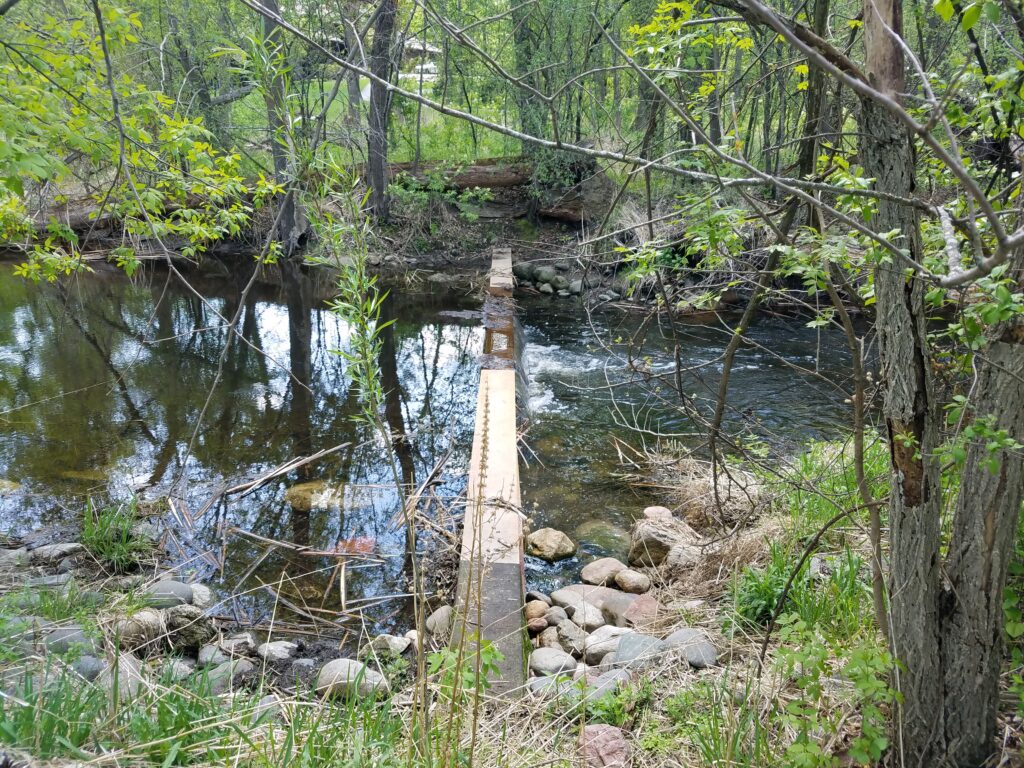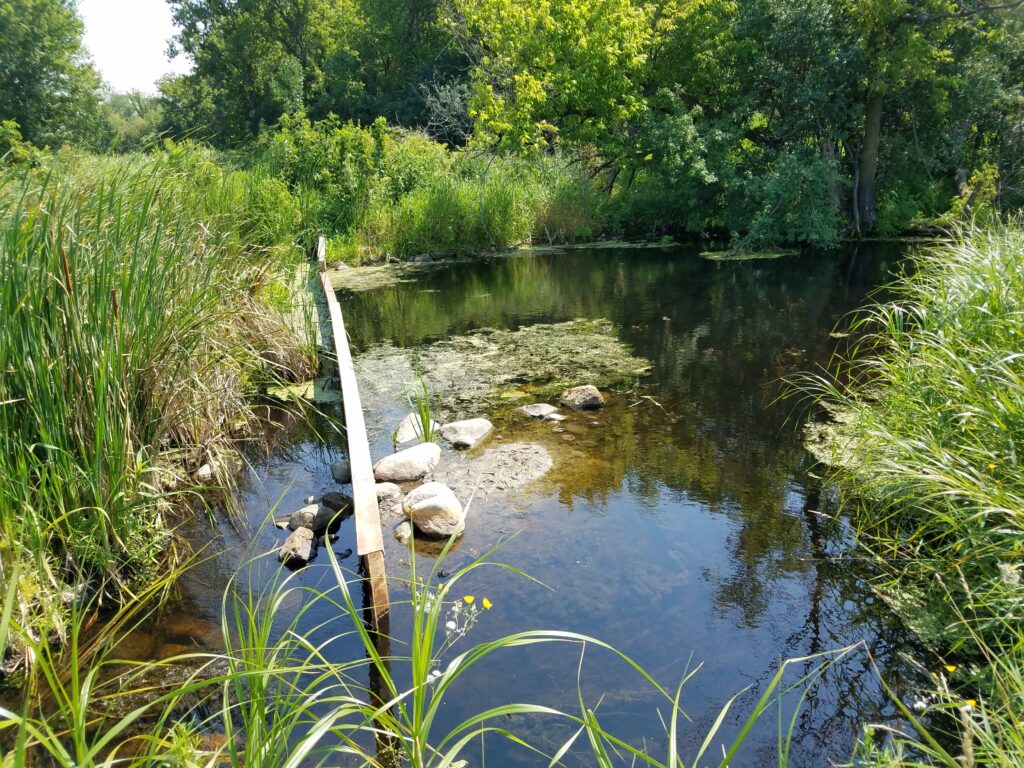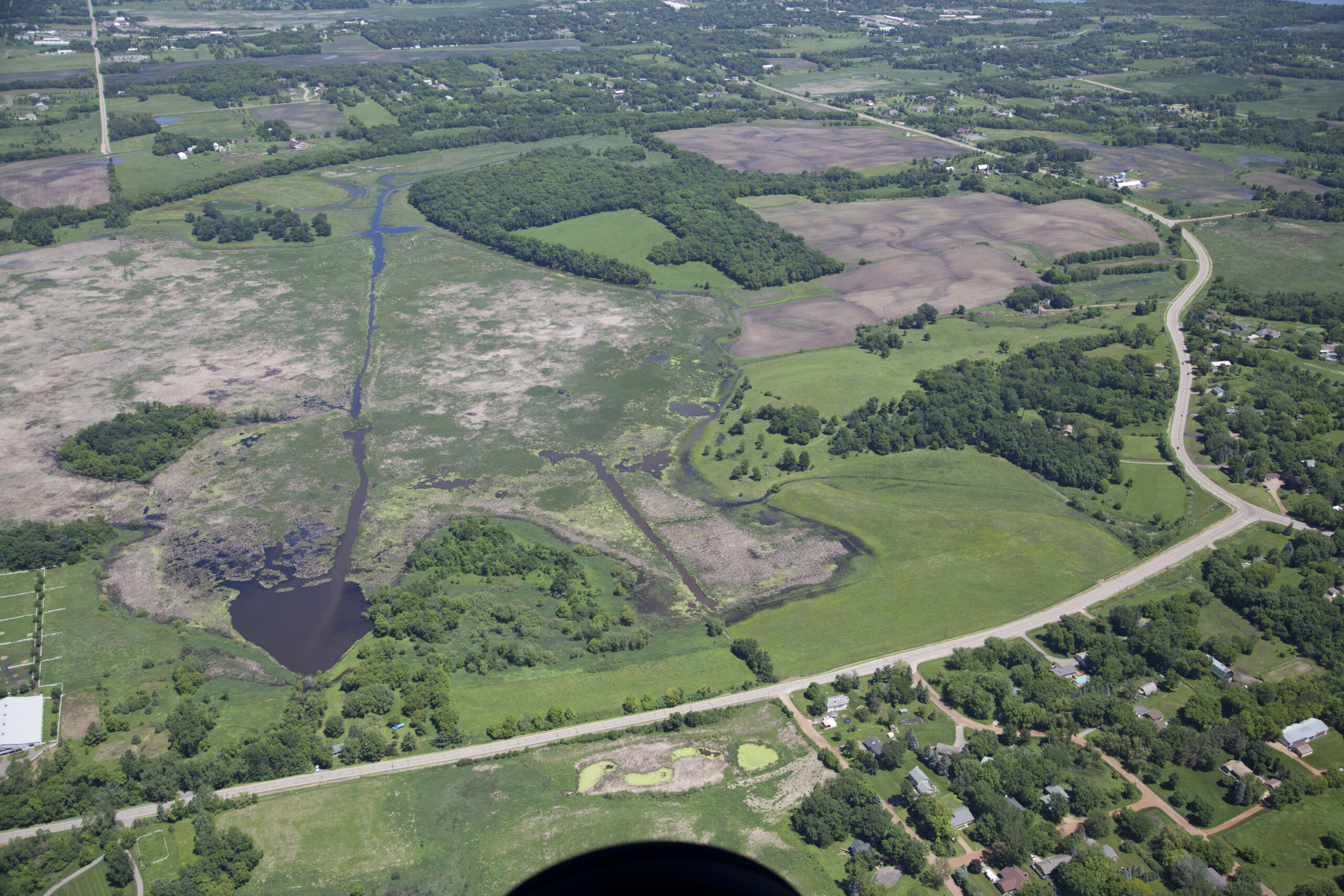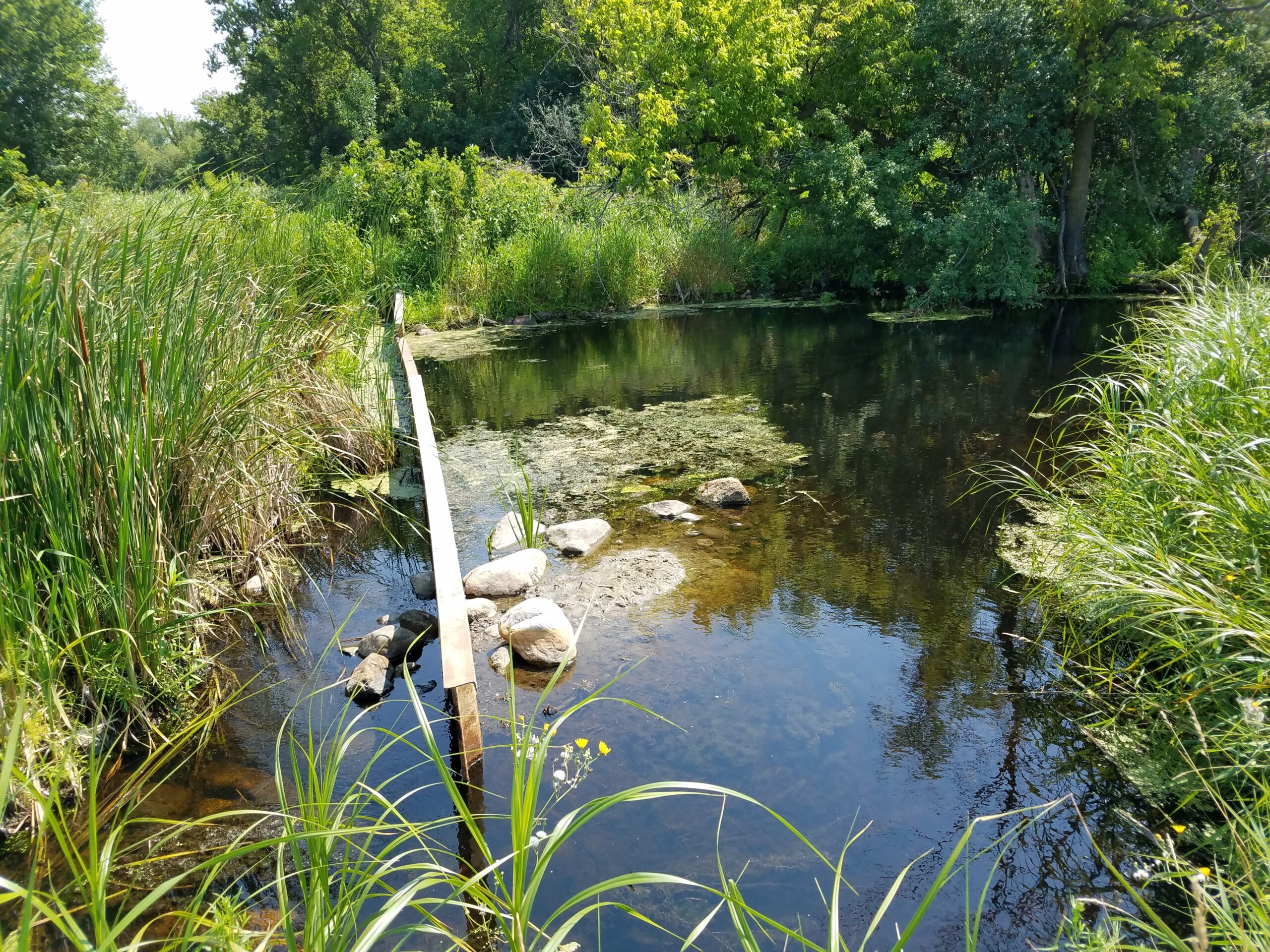
Jennings Bay-Painter Creek Projects
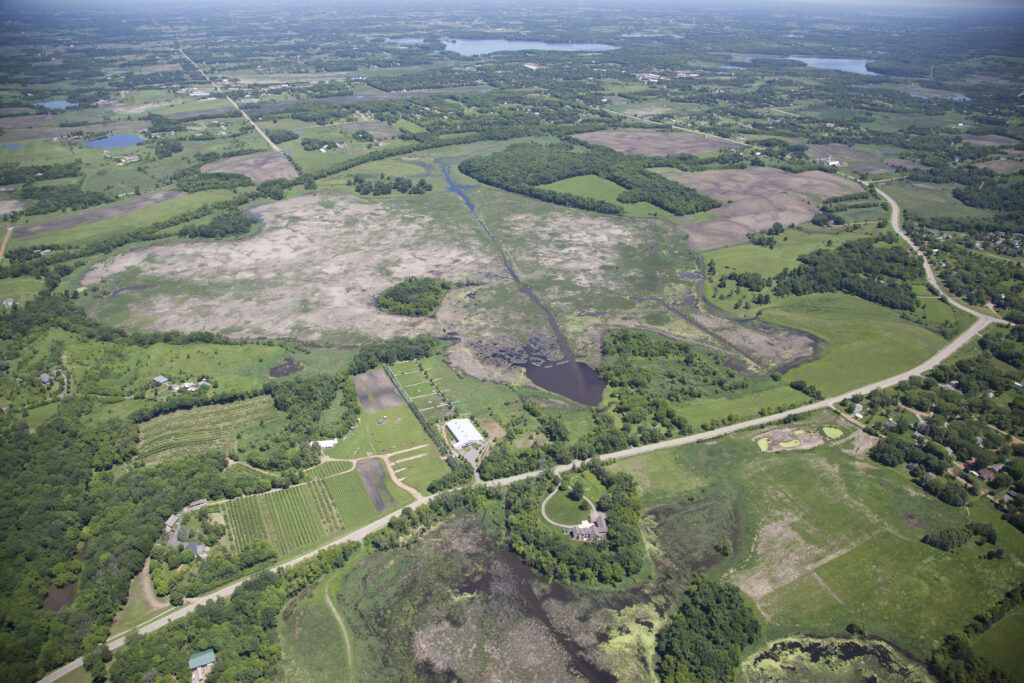
Overview
After studying the degradation and poor water quality of Jennings Bay, the Minnehaha Creek Watershed District identified seven construction areas to increase storage capacity of Painter Creek and reduce nutrient discharge into Jennings Bay. In 1985, MCWD constructed outlet structures at Lake Katrina, Pond 937, and Painter Marsh; installed two sediment basins as South Katrina Marsh and Painter Marsh; installed a fish barrier; and undertook channel clearing and widening to increase capacity. In 1997, MCWD removed accumulated sediment and increased the size of the Painter Marsh and South Katrina sediment basins.
Historically, the water quality of Painters Creek has been degraded due to Maple Plain wastewater treatment plant discharge and agricultural land uses. This has adversely impacted Jennings Bay as well and is strongly suspected to be the cause for a significant build-up of nutrients in Jennings Bay sediments. Jennings Bay has an estimated phosphorus loading of 4,800 lbs. per year (16 lbs./acre of lake surface area). Painters Creek non-point source loading contributes nearly 50% of the total loading to Jennings Bay.
Project Timeline

Planning Phase
Planning Phase
1970 — Water quality data gathered
1980 — MCWD Board of Managers orders Painter Creek Watershed Study
1995 — Additional water quality data gathered to inform design upgrades

Design Phase
Design Phase
1983— Public Hearing to determine project design
1985 — Construction design finalized

Construction Phase
Construction Phase
1985 — Construction of the structures
1997 — Upgrades constructed

Project completion
Project Completion
1997 — Project complete
By the Numbers
>20,000
Square Feet
of channel volume increased
900
acre feet
of flood storage created
100
year flood
risk reduced in Lake minnetonka
Project Highlights
- New outlet structures at Lake Katrina and Pond 937
- New sediment basins at South Katrina and Painter Marsh
- Channel clearing and widening
- Painter Drive culvert reconstruction
I think the proposals have great potential for slowing the excessive flow that comes with heavy rainfall. And it’s essentially marshland that’s affected. And I think it will slow the flow of nutrients and have the ultimate effect of improved water quality for Lake Minnetonka.
State Sen. Gen Olson – Sun Newspapers, 1983
Partnership
The projects in the Painter Creek subwatershed were completed solely by the Minnehaha Creek Watershed District.
Funding
Project Cost: $1,000,000
The project was completely funded by MCWD.

